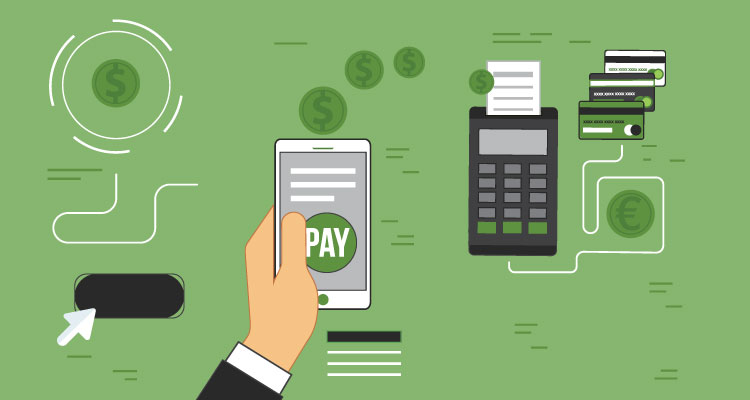A mobile wallet is a virtual wallet that stores financial information and card data on a mobile device. These wallets can be used as a convenient way for a user to make in-store and online payments. In an increasingly tech savvy era, we can expect to see the majority of payments moving towards cashless transactions. Using mobile technology, companies and their consumers are adapting to emergent ways of conducting offline and online transactions using digital payment methods like the mobile wallet.
Potential for Mobile Wallet Payments
The potential for mobile payments is huge and it lies in the hands of the millennials. In fact, its estimated that eight out of ten millennials reported that they shop and pay their bills online via a mobile phone. More recently, a study found that 32 percent of millennials envision a completely cashless society where currency will no longer be necessary for transactions. In addition to millennials, international mobile payments usage is increasing due to consumers moving away from financial institutions. Here’s the number of mobile payment users by region in 2016:
- Asia/Pacific: 163.6 million
- Africa: 101.3 million
- North America: 90.7 million
- Europe: 64 million
- Latin America: 22.3 million
- Middle East: 6 million
The number of users in each region has been steadily increasing year over year as many of the top payments companies and online payments platforms provide a plethora of mobile payment options. As we see this trend continue, we can expect to see more stores both online and offline adopting digital payment technology. This allows them to broadens their payment acceptance for methods like mobile wallets.
Advantages of Mobile Wallets
A mobile wallet can be used for many things. Typically they are used for in-store and online payments, managing credit and debit cards, and storing financial data. Mobile wallets put up a guard against fraudulent activity and are much harder to access than a physical credit card (for obvious reasons). Mobile wallets also use encrypted keys which essentially makes your financial information indecipherable to a fraudster. Here are some more advantages:
Advantages for Merchants
- Additional communication and extensive reporting capabilities
- Targeted communication
- Increased online sales by increasing payment acceptance and expediting checkout flow
- Personalized promotion and loyalty programs directly to user devices
- Overall more connected, customized, and real-time marketing efforts
Advantages for Consumers
- Convenient tap-to-pay purchases which makes for an expedited shopping experience
- Unified payment method for both online and offline purchases and more merchants adopt this technology
- Automatic redemption offers for offers and coupons
- Wallets that can be remotely locked
[Related: Do You Really Need to Add a Mobile Wallet for Your Customers?]
The Future of Mobile Wallets
We can expect to see mobile wallets become an increasingly popular payment method in the years to come. Millennials along with a few other factors will be the driving force behind the shift towards a completely digital economy. Here are a few of those reasons:
- It’s cheaper for governments since it’s expensive to produce and regulate physical currency
- Crime will be reduced since it’s much more difficult to steal and access digital currency
- Payments will occur almost instantaneously, no matter where you’re geographically located
- We may be able to adopt “global” currency’s with the introduction of cryptocurrency’s like Bitcoin making currency exchanges a thing of the past
Whether we like it or not, the mobile and digital wallet revolution is upon us. Whether you’re a merchant or consumer, it’s time to jump on board and educate your self about the awesome perks of mobile wallets.














